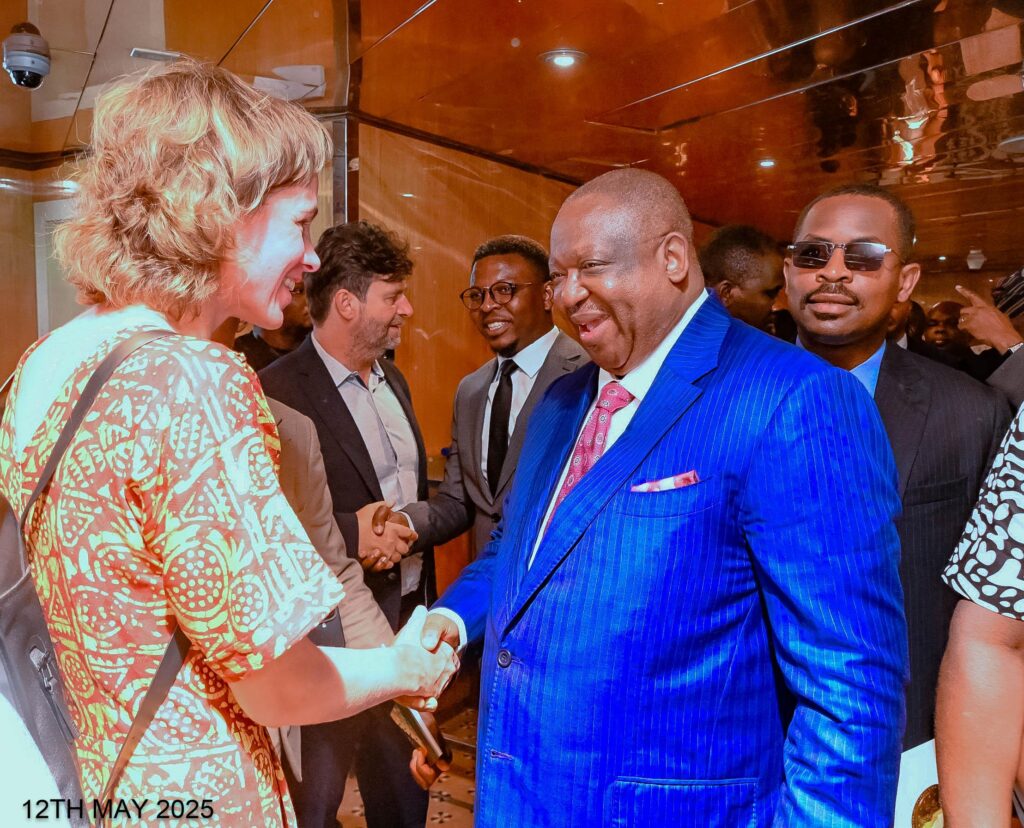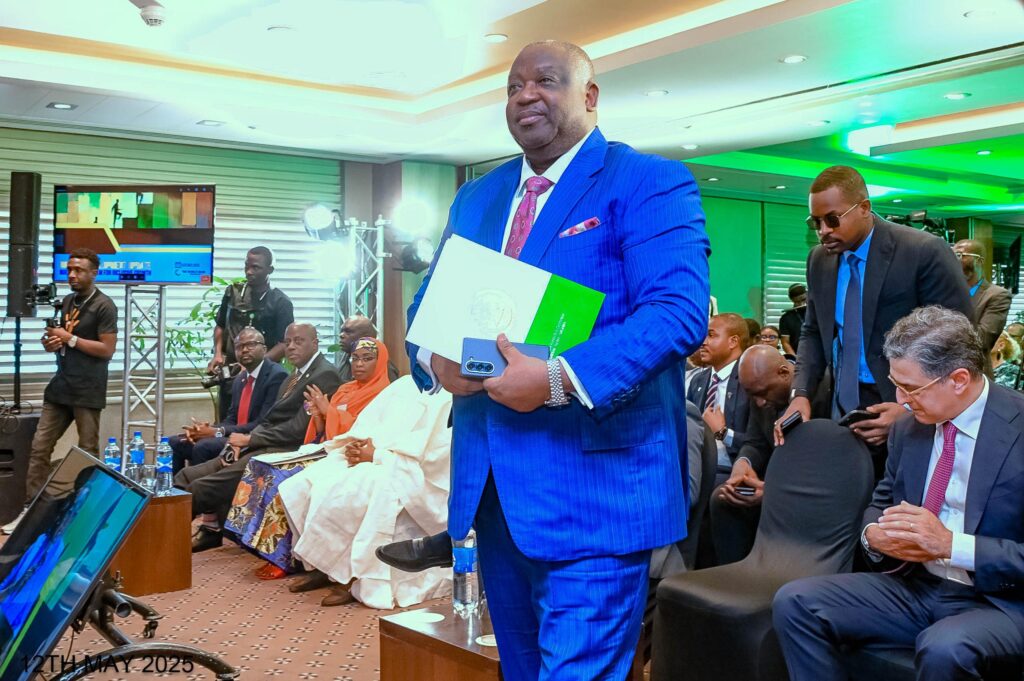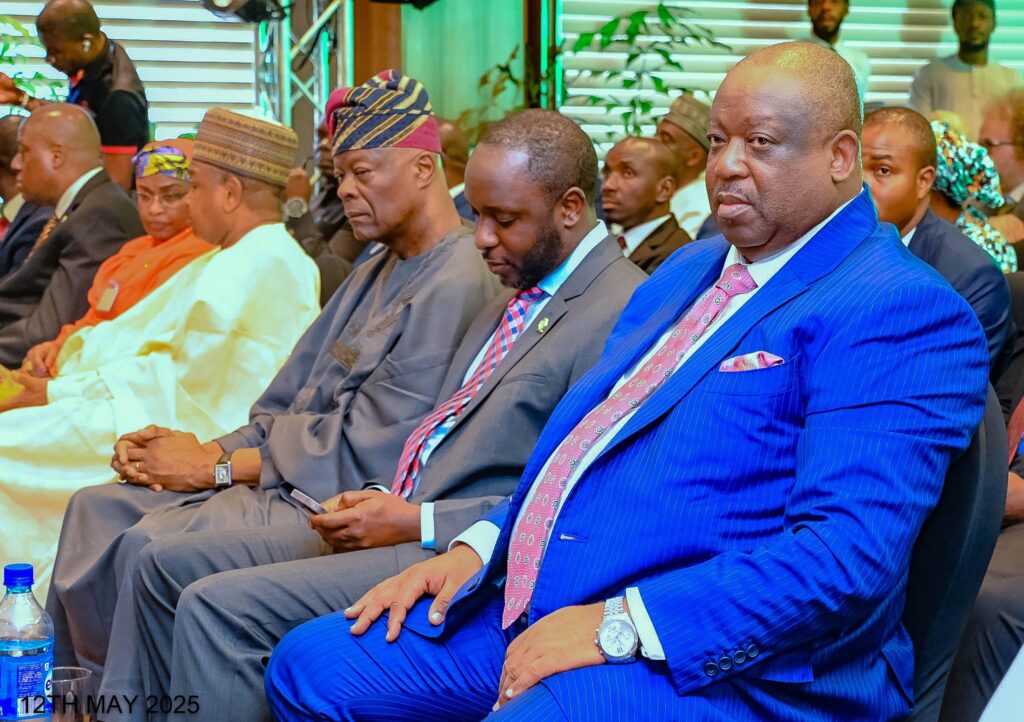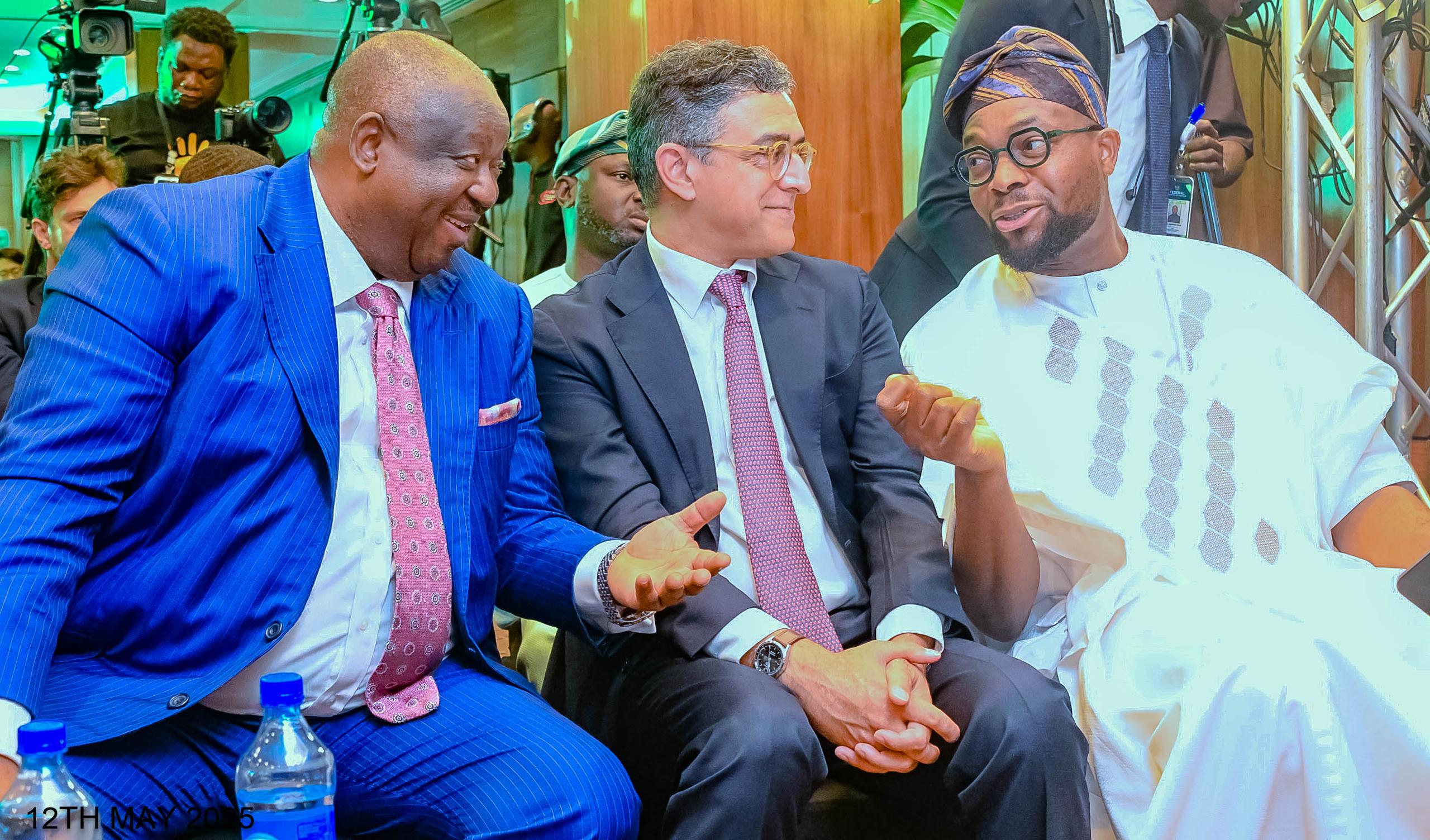Plateau State Governor, Barr. Caleb Manasseh Mutfwang, was among the distinguished panelists at the launch of the May 2025 edition of the Nigeria Development Update (NDU), a flagship World Bank report series that assesses Nigeria’s economic and social development prospects.
Governor Mutfwang featured alongside other notable speakers, including the Governor of the Central Bank of Nigeria (CBN), Mr. Olayemi Cardoso; Minister of Communications, Innovation and Digital Economy, Dr. Bosun Tijani; Minister of Finance and Coordinating Minister of the Economy, Mr. Wale Edun; and Managing Director/CEO of UAC Foods Ltd., Mr. Oluyemi Oloyede. The event, titled Building Momentum for Inclusive Growth, focused on accelerating Nigeria’s economic trajectory in a way that benefits all citizens.
In his remarks, Governor Mutfwang declared that “Plateau is on the rise and steadily charting a course toward economic prosperity.” He acknowledged an increase in national revenues but raised concern about the declining purchasing power that continues to undermine the real value of those revenues at the state level.
He stated: “Yes, revenue to the state has increased—there’s no doubt about that. But we cannot ignore the harsh reality that purchasing power has significantly declined. As leaders, we are committed to responsible spending aimed at improving the wellbeing of our people, and we continuously engage in peer reviews to enhance our approach.”
Highlighting the strides made in Plateau State, the Governor noted a remarkable improvement in Internally Generated Revenue (IGR), saying: “When we took office, Plateau was generating about N800 million monthly. I’m pleased to report that we now generate over N3 billion monthly. The key to this growth is strategic investment in sectors where we have comparative advantage.”
According to Governor Mutfwang, agriculture remains central to the state’s development strategy.
“In 2023, our budget for agriculture was around N3 billion. This year, we increased it to N13 billion. We’re investing in the entire value chain. Plateau is also among the first states to establish a Ministry of Livestock, following the Federal Government’s lead, due to our advantage in that sector,” he said.
He, however, emphasized that insecurity continues to divert funds meant for critical infrastructure: “We’re spending a lot to tackle insecurity, which is affecting microeconomic stability. It’s a national challenge, not peculiar to Plateau. But as leaders who sought this mandate, we have no excuse. What we are offering our people is hope. Based on the NDU’s report, we’re on the right track, and that gives us confidence in the future.”
Governor Mutfwang also spoke on efforts to support vulnerable populations, explaining that subsidies have been provided in agriculture through access to inputs. He cited an inclusive cash transfer initiative in the transport sector that subsidizes movement for over 8,000 passengers daily, an equivalent of about N39,000 per person monthly.
He further revealed ongoing collaborations with the Nigerian Railway Corporation to revive rail services in the state as part of efforts to alleviate hardship.
On human capital development, the Governor highlighted that scholarships for indigent students had been increased by 100%, and tuition fees in tertiary institutions subsidized.
“We have implemented significant subsidies in education and healthcare, positively impacting the lives of vulnerable citizens across Plateau,” he added.
In his opening remarks, Acting World Bank Country Director for Nigeria, Mr. Taimur Samad, commended the robust participation in the event. He explained that the Nigeria Development Update is a biannual EU and World Bank report that provides in-depth analysis of recent economic trends and offers perspectives on the country’s economic outlook.
“This edition of the NDU focuses on inclusive growth, growth that is not only faster but benefits all Nigerians by creating jobs and broad-based opportunities, especially for the poor and economically insecure,” Mr. Samad said.
He noted positive signs in the economy, including increased growth, a more reflective and stable exchange rate, rising foreign reserves, and improved fiscal positioning driven by higher federation revenues.
“However, challenges remain, especially persistently high inflation. It is crucial for the CBN to maintain a tight monetary policy to anchor economic stability,” he stressed.
Presenting an overview of the 2025 NDU, Mr. Alex Sienaert encouraged a shift toward a private sector-led, public sector-facilitated growth model.
“The role of the public sector should be to create a conducive environment and establish the right incentives for businesses to thrive,” he noted.



count | 65

Recent Comments
Mwanchuel Daniel PamMarch 8, 2024 at 11:06 pm
Bob WayasNovember 6, 2023 at 5:30 am
JosephNovember 5, 2023 at 3:47 am